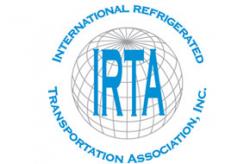What is the Proper Way to Store Shell Eggs?
Question: Are there any issues with storing shell eggs with products in sealed drums, or product in case cartons? Should I be concerned about the potential for cross contamination?
Answer: Even though the eggs are in sealed containers, they need to be stored on a lower shelf and not over any product other than eggs. This is so that if an egg does break and drip down, it does so either onto other shell eggs or onto the floor, and not onto another food product. The most common means of cross contamination in food storage is directly from one food to another. Shell eggs have been shown to be a leading cause of Salmonella.
In addition, federal regulations also mandate that shell eggs cannot be stored at an ambient temperature greater than 45°F. Shell eggs, stored at 45°F with a relative humidity of 70-80%, will have a shelf life of 2-3 weeks. For longer-term storage of 5-6 months, store eggs at 29-31°F with a relative humidity of 85-92%. However, when eggs are removed from these temperatures, they may be below the dew point resulting in condensation of the shell surface (sweating), and it may be necessary to temper them to a higher temperature to prevent sweating.
Answer provided by Dr. Michael Jahncke, Virginia Polytechnic University & WFLO Scientific Advisory Council (SAC) Chairman.
Have a question?
![]() We have an answer. Submit your questions to the GCCA Inquiry Service. From legal issues to food storage or handling questions, we work with industry experts and scientists to find you answers.
We have an answer. Submit your questions to the GCCA Inquiry Service. From legal issues to food storage or handling questions, we work with industry experts and scientists to find you answers.



